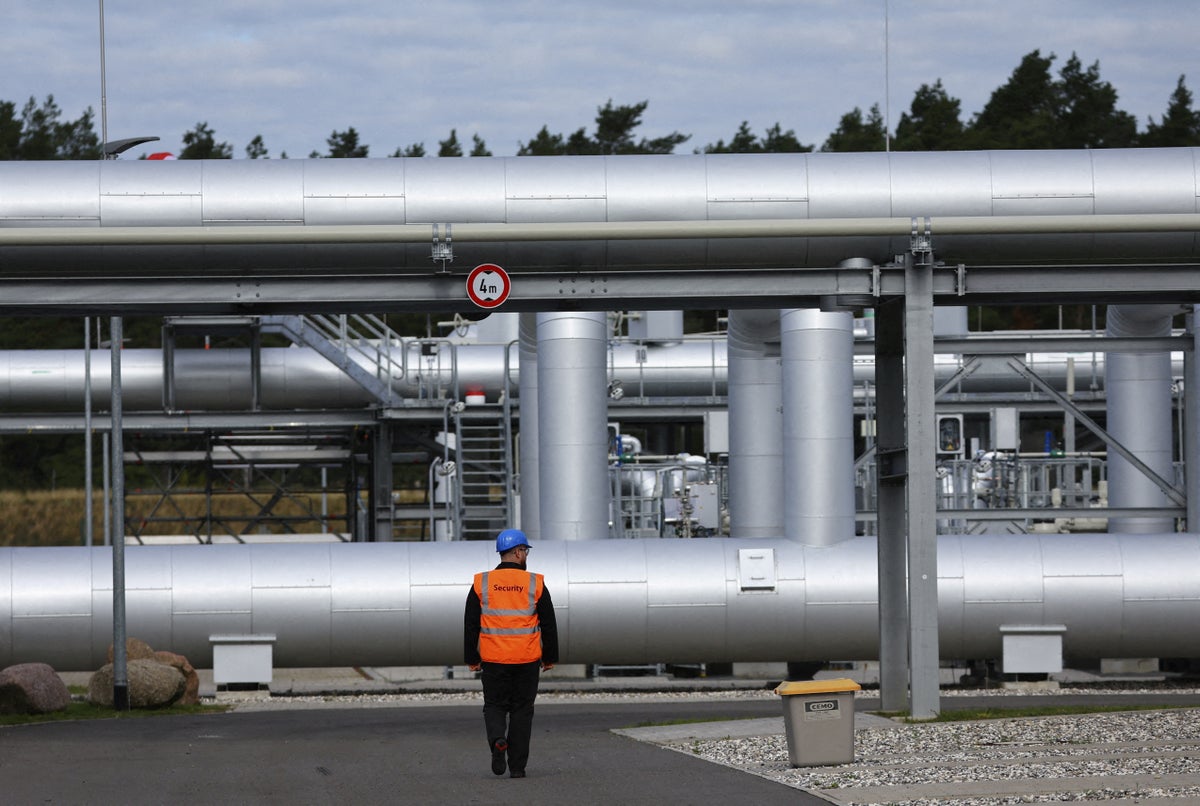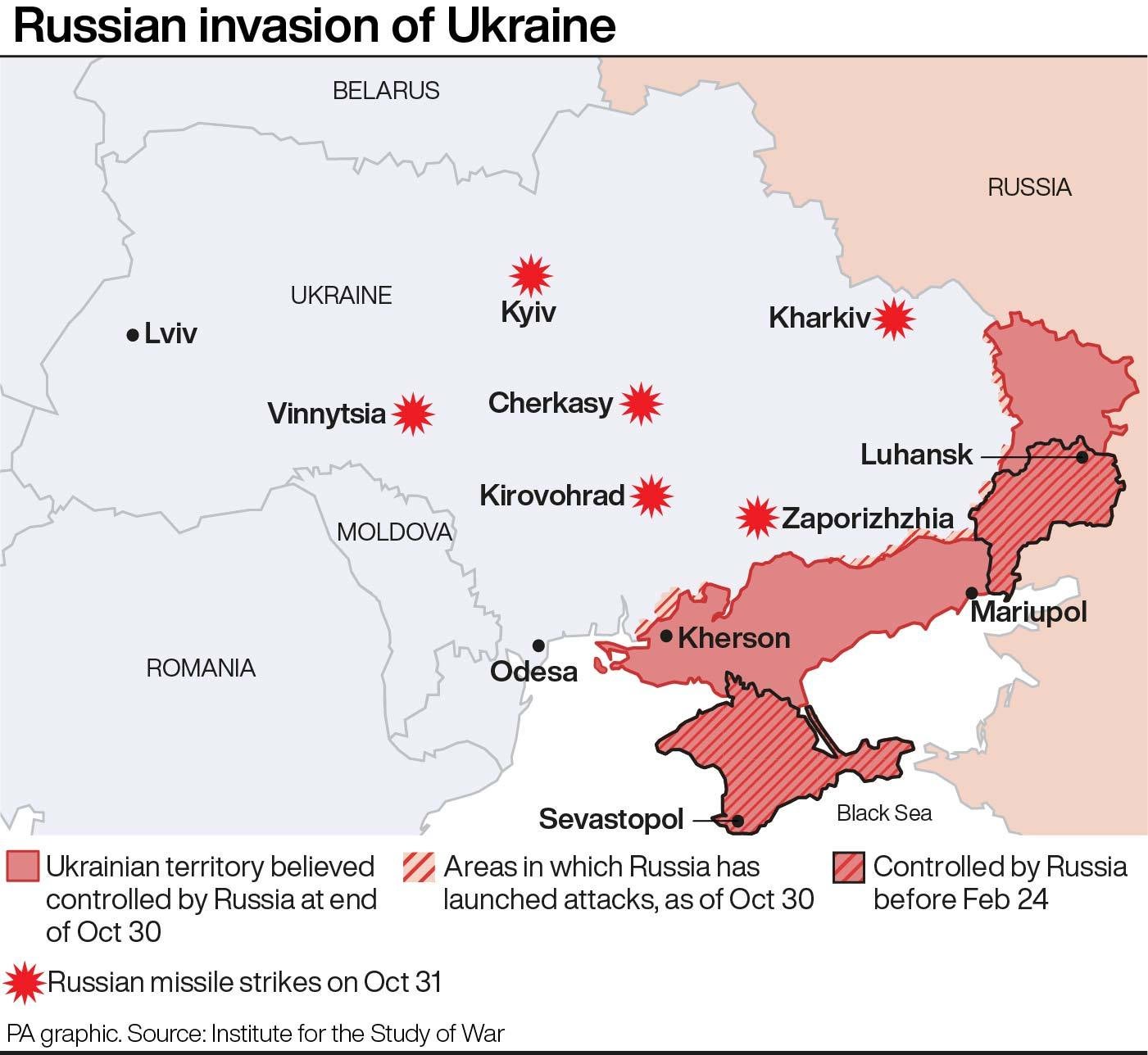
Moscow has said it is considering taking “further steps” in response to its allegation that Britain was responsible for an attack on the Nord Stream pipelines – an accusation described by UK authorities as “invented”.
The 760-mile pipeline, which run between Russia to Germany via the Baltic Sea, at a depth as low as 110 metres, was ruptured in September, for which Moscow was initially blamed.
On Saturday, however, Russia’s defence ministry accused Royal Navy personnel of blowing up the key undersea gas pipelines.
London said the claim was false and designed to distract from Russian military failures in Ukraine.
The Kremlin has not provided evidence to support its claims that the Royal Navy was responsible for the ruptures on the pipelines, which have threatened to put the key gas link permanently out of use.
“There is evidence that Britain is involved in sabotage... a terrorist act against vital energy infrastructure,” Kremlin spokesman Dmitry Peskov said.
“Such actions cannot be put aside. Of course, we will think about further steps. It definitely cannot be left like this.”
Mr Peskov also said no decision had been taken on whether to repair the Russian-owned pipelines, and that the Kremlin was awaiting for an expert assessment of the damage.
Following Moscow’s initial accusation on Saturday, a UK Ministry of Defence (MoD) tweet said: “To detract from their disastrous handling of the illegal invasion of Ukraine, the Russian Ministry of Defence is resorting to peddling false claims of an epic scale.

“This invented story says more about arguments going on inside the Russian government than it does about the West.”
Nord Stream 1 and 2 were the most important supply route for Russian gas to Europe, with a joint annual capacity of 110 billion cubic metres.
In late September, the pipline operators noted a sharp drop in pressure and seismologists detected explosions before four leaks were recorded.
Sweden last week ordered additional investigations to be carried out on the damage.
Authorities in both Sweden and Denmark have concluded the gas leaks were caused by explosions, but have not said who might be responsible.







